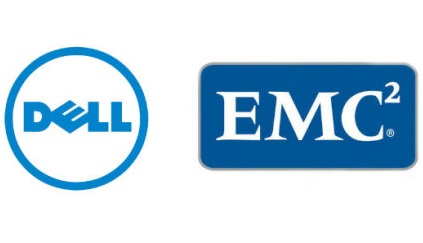Dell has bought EMC Corporation, creating the world’s largest privately-owned, integrated technology company.

For Dell, the merger marks an expansion into new markets as a fall in demand for PCs forces the company to look for new revenue streams.
The area of data storage is said to have been identified as a key area of growth.
The deal, worth $67bn (£44bn), is the 17th biggest merger and acquisition deal ever based on the nominal value at the time of the agreement.
“The combination of Dell and EMC creates an enterprise solutions powerhouse bringing our customers industry leading innovation across their entire technology environment,” said Dell founder and CEO, Michael Dell.
“Our new company will be exceptionally well-positioned for growth in the most strategic areas of next generation IT including digital transformation, software-defined data centre, converged infrastructure, hybrid cloud, mobile and security.”
EMC is based in Massachusetts, US, and provides data storage and IT security services to other businesses.
VMware, a subsidiary of EMC which provides cloud storage, will also be involved in the deal but will stay an independent, publicly traded company.
The deal is expected to be finalised between May and October 2016.
“I’m tremendously proud of everything we’ve built at EMC – from humble beginnings as a Boston-based startup to a global, world-class technology company with an unyielding dedication to our customers,” said Joe Tucci, chairman and chief executive officer of EMC.
“But the waves of change we now see in our industry are unprecedented and, to navigate this change, we must create a new company for a new era.
“I truly believe that the combination of EMC and Dell will prove to be a winning combination for our customers, employees, partners and shareholders.”
Analysis- learning the lessons of Microsoft and Nokia
Commenting on the Dell / EMC transaction, Victor Basta, managing partner at Magister Advisors, M&A advisors to the technology industry, said: “This is the largest ever pure-play technology deal but it is not about technology. It is about industrial concentration rather than transformation, which says a great deal about soaring valuations in the tech industry. You would expect a $67 billion deal to shift the plate tectonics of the industry, but this is far from that.
“Neither Dell/EMC nor the recently announced Avago/Broadcom deal is about significant transformation, as was IBM’s move into software years ago. In fact EMC’s VMWare software business – the only potentially transformative element – is left out of the Dell deal altogether.
The big bet Dell/EMC are making is that corporate IT budgets remain healthy, and there are enough economies of scale to increase margins for the combined company. Dell must also be betting that they can apply their proven sales and marketing nous from their days at the height of the PC trade to the enterprise storage market and become a top tier choice.
“In the current environment transformational deals are very expensive, so companies are opting for affordable extensions. In this case the deal extends both companies’ product lines, (Dell to storage, EMC to enterprise devices) rather than adding market share in existing categories, which is the hallmark of consolidation. Industrial concentration also drove the $40bn Avago/Broadcom deal, adding Broadcom’s wireless expertise to Avago’s existing business lines. Pure consolidation in hard to do in tech, as value ‘leaves work at night’ and pure consolidation and cost cutting can drive out the best talent. Witness the HP/Compaq PC consolidation deal which destroyed so much value.
“Dell had three options available to it: go headlong into mobile to address the flight from the desktop, do a transformative software deal, or do what they’ve done, which is to buy what is essentially a commodity business. The other choices – mobile and software – would have been wreckless and unaffordable in turn. Microsoft’s acquisition of Nokia and the wreckage of BlackBerry are instructive on the risks of mobile – and quality proven software assets are simply unaffordable even at this price, especially for a PE-backed firm.
“If we pull back the lens and factor in the forthcoming Avago Broadcom deal, we see two transactions with a combined value of more than $100 billion. What is telling is that even at these colossal levels, transformational industry deals are simply unaffordable.”
